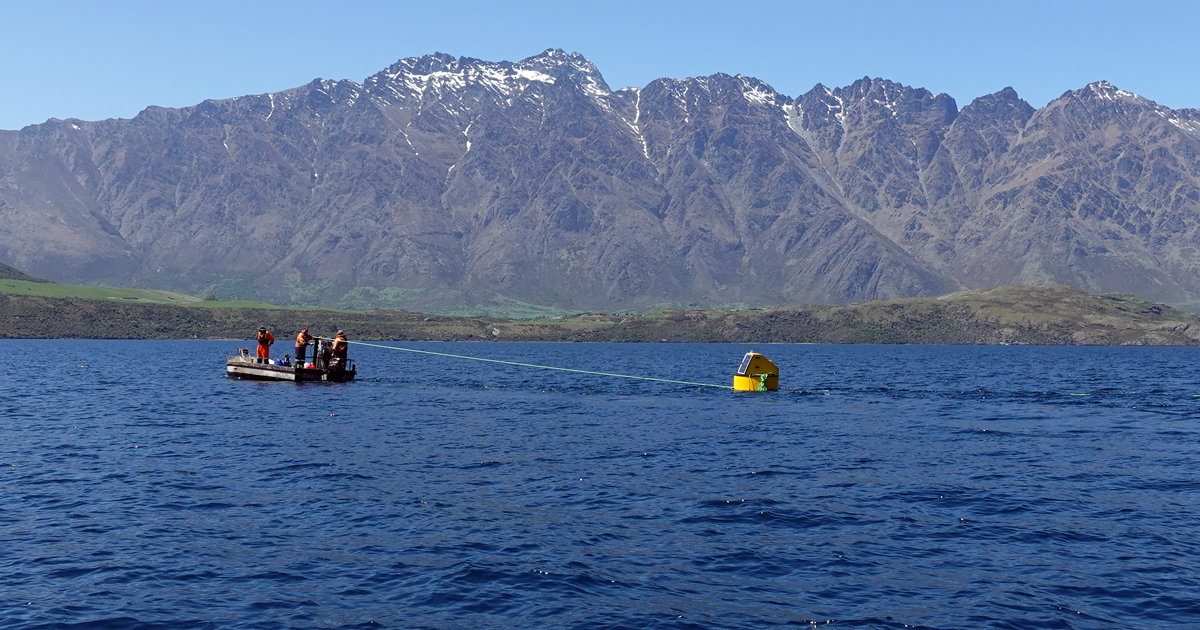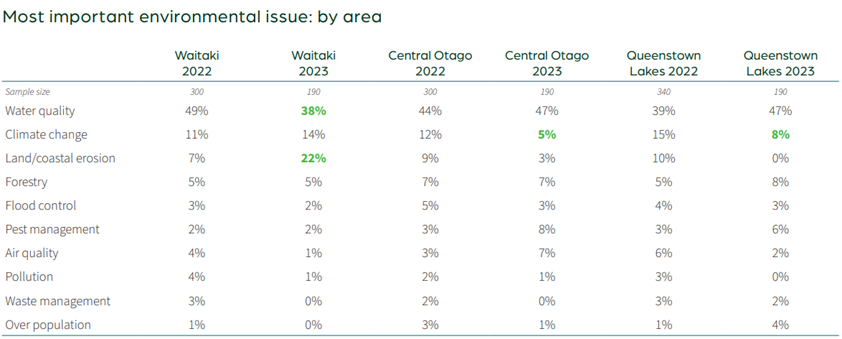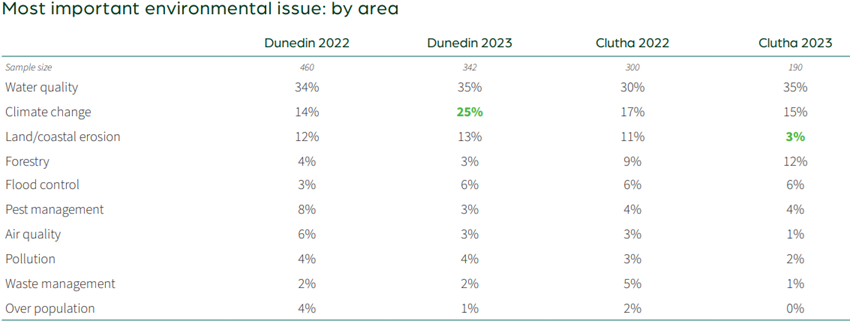ORC Chair Gretchen Robertson thanked the more than 1,100 people who took the time to contribute to the recent survey, saying their input is crucial to ORC’s planning processes.
“These are changing times in the environmental space and it’s of huge importance to us that we get a clear steer from people across the region on what is of most significant concern to them,” she says.
The 2023 results mirrored those from 2022, with the top three environmental issues being water quality (39%), climate change (18%) and land and coastal erosion (9%). Full tables are below.
Cr Robertson highlighted an increasing concern about climate change this year, up 4%, with key concerns around the impact on the broader environment, the issue’s urgency and the fact that actions have a global effect and are not simply a regional impact.
She says this year 19% of respondents rated ORC’s response to the environmental issue they identified as excellent, 40% rated it as average, and 26% rate the response poorly.
“This set of results show a significant, 5% increase in positive ratings from a year ago and a big decline in poor ratings, which were down by 4%.”
“While we can take heart from these positive improvements, we’re striving every year to improve results and outcomes, which means staff and Councillors working more and more closely with communities to protect and enhance the environment,” she says.
“This is a shared responsibility,” she says.
Cr Robertson said while a significant proportion of respondents consistently note that water quality in the region is deteriorating, most respondents stated that air quality, land-based environments and coastal resources remain unchanged or are improving.
“As custodians of the environment, ORC’s staff and Councillors have a big role to fulfil in not only protecting but enhancing the environment for everyone, whether they are using resources recreationally or as an input toward an economic benefit,” she says.

Deployment of water monitoring buoy on Lake Wānaka last year.
Engaging with Government
Cr Robertson says the survey results are “very timely” now that engagement is underway with Ministers of the new coalition Government.
“The results reflect the issues of concern that Otago’s communities want to see targeted and addressed,” she says.
She noted ORC had last week engaged with numerous Ministers and acknowledges changes are expected, but she emphasised details on changes or any pause in regulations may take months to finalise, and then further time to implement.
“Many people will find this frustrating. But at the forefront of these changes must be the protections around the environment, be it waterways, land use or air quality which we all must share, but equally take responsibility for,” she says.
Cr Robertson says she “entirely endorses” recommendations from the survey, around a continued focus on water quality, climate change initiatives, that there be targeted communication and engagement strategies in place and an ongoing focus to improve public transport services.
“We remain committed to public transport being a key service. While there’s still driver shortages at times, we have now entered the e-bus era, with the first of 11 buses going into service in Dunedin this month,” she says.
Cr Robertson says enhancing public transport’s efficiency, reliability, and coverage is crucial for reducing traffic congestion, lowering emissions, and providing equitable mobility access.
“By having a focus on building better service reliability will ultimately be beneficial to boosting patronage,” she says.
Awareness of ORC’s primary activities
Respondents were asked what primary ORC activities they were aware of; being water quality monitoring, flood protection infrastructure, public transport, biodiversity and pest management, civil defence and emergency management, pollution response, air quality monitoring and the issuing of resource consents.
Water quality was identified by 81%, flood protection, 68% and public transport, 66%, while Cr Robertson was pleased to see a “significant increase” in awareness of ORC’s involvement in biodiversity, 62%, and civil defence activities, at 58%.
She says this year the sample size was reduced from 1,700 in 2021 and 2022 to 1,100 in 2023 as a cost savings measure, to ensure the project could be delivered for the allocated budget.
The survey is publicly available on our website in the agenda for the Regional Leadership Committee meeting in Ōamaru on Wednesday, 21 February.
Over three weeks from 30 October last year, 1,102 people were surveyed using phone (30%) and online (70%) survey techniques, from Waitaki (190), Central Otago (190) and Queenstown (190), Dunedin (342) and Clutha (190).
Responders were 53% female and 47% male, with 24% aged under 39, 46% were 40-64 and 35% were over 65 years old.


